Penis Augmentation in Thailand
Search and Compare the Best Clinics and Doctors at the Lowest Prices for Penis Augmentation in Thailand
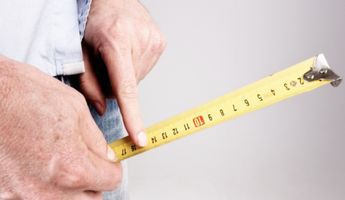
Find the best clinics for Penis Augmentation in Thailand
With Medijump you can browse 7 facilities offering Penis Augmentation procedures in Thailand. The cheapest price available is $683 in Bangkok. And for the cheapest price globally, prices start from $500 in Egypt.
Penis Augmentation in Bangkok
Price: $ 683
Penis Augmentation in Pattaya
Price: $ 5,002
Egypt offers the best prices Worldwide
Price: $ 500
From 1 verified reviews
Zhisheng Fung, 22 March 2024
Great service. The doctor is skilled and careful. My wound healed quickly. The staff are friendly. Thanks to the whole team!
From 42 verified reviews
Ethal Villanueva, 11 March 2024
Very pleased with the hairline lowering surgery results. The staff was friendly and the clinic maintained high standards of care throughout. Really pleased i chose kamol. I saw loads of SRS patients in there and all who i spoke to raved about dr kamol
From 25 verified reviews
Isabella, 05 August 2024
I received excellent care at Eternity Clinic. The doctors are knowledgeable and genuinely care about their patients.
From 3 verified reviews
Maya, 28 August 2024
Great experience from start to finish. The arm lift has boosted my confidence so much. V Plast Clinic is the place to go!
Interplast Clinic, located in Pathum Wan, Bangkok, Thailand offers patients Penis Augmentation procedures among its total of 20 available procedures, across 2 different specialties. The cost of a Penis Augmentation procedure ranges from ฿40,000 to ฿160,000, whilst the national average price is approximately ฿127,938. All procedures and treatments are undertaken by the lead specialist at the Clinic, and they are not accredited by any recognized accreditations institutes
From 1 verified reviews
Jiratchaya Sangtale, 12 August 2020
I am very pleased. I've been doing it for 10 days. The milk is so beautiful. The elders here provide good service to everyone, paying attention to every detail, every step. The doctor was very kind and gentle. Want a beautiful milk, milk pang, have to come and do it at Looks Clinic and you will not be disappointed because it is really cool.
Max Wellness Clinic, located in Phra Khanong, Bangkok, Thailand offers patients Penis Augmentation procedures among its total of 7 available procedures, across 5 different specialties. The cost of a Penis Augmentation procedure ranges from ฿24,570 to ฿98,280, whilst the national average price is approximately ฿127,938. There are many specialists available at the Clinic, with 8 in total, and they are not accredited by any recognized accreditations institutes
- Home
- Thailand
Compare Before & After Photos of _procedure_photos.phpPenis Augmentation

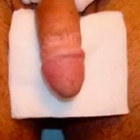
Front view
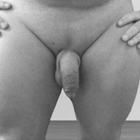
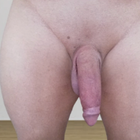
Front view
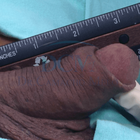
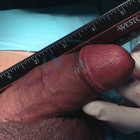
Half-side view

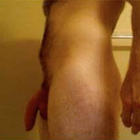
Full-side view
WHY US?
At Medijump, we're making medical easy. You can search, compare, discuss, and book your medical all in one place. We open the door to the best medical providers worldwide, saving you time and energy along the way, and it's all for FREE, no hidden fees, and no price markups guaranteed. So what are you waiting for?

Free

Best Price

Widest Selection

Risk-Free
What you need to know about Penis Augmentation in Thailand
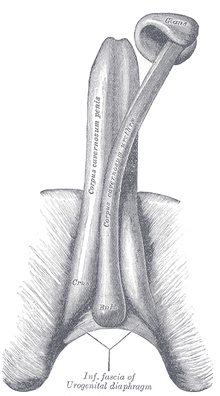
Also known as a Penis Enlargement, Penis Enhancement, Phalloplasty or the Penoplasty and involves any technique aimed to increase the size of the penis, where some procedures aim to increase total length, others may increase the shaft's girth. The Penile Implant is an alternative technique that is more common among those with erectile dysfunction. The procedure is performed under general anesthetic and can be completed in 45-60 minutes.
The most common procedure involves lengthening the flaccid penis by releasing the muscle at the Mons Pubis, but there is also the option for a fat transfer, which combined with liposuction, is particularly useful for increasing the girth. Note that these procedures aide in increasing the length of the flaccid penis only, the erect length remains the same.
To increase the length of the erect penis, a form of penile disassembly is required, where the head is detached and the extra tissue is grafted into the shaft - this technique takes longer and is more expensive. All techniques require two nights of hospitalization and a recovery time of 10-14 days in Thailand.
What is the cost of Penis Augmentation in Thailand?
The expense related to the Penis Augmentation in Thailand can differ based on many factors. These encompass the particular details of the operation, the competency of the medical professional, and the amenities provided by the selected healthcare center.
Although being mindful about cost is logical, it's vital not to sacrifice the standard of treatment. A credible healthcare institution will be clear about the expenses, offering you an itemized elucidation. Additionally, it's beneficial to explore if your medical insurance provides any coverage for the operation or related care.
What does a Penis Augmentation Procedure Involve?
Before proceeding with the surgery, you will have an extensive consultation with your surgeon to determine whether the procedure is suitable for you. You will discuss your expectations and it is important to be realistic to avoid disappointment. You should also inform your surgeon about the reasons why you want to undergo the surgery. Your surgeon will get you to do a physical examination to find out if you have any medical conditions and to help your surgeon evaluate the best treatment option for your specific case.
During the surgery you will be given general anesthesia, meaning you will be asleep and will not feel anything. The most common types of penis augmentation surgery are:
- Penis girth surgery is aimed to increase the thickness of your penis in a flaccid and erect state. Your surgeon will perform a small liposuction procedure to harvest fat from the abdomen, thigh, or buttock. The fat is then purified with a system to improve the quality of the fat. The last step is distributing the fat along the shaft of the penis to thicken it. Some studies claim an increase in girth of around 1.4 cm to 4 cm.
- Penis length surgery can give the flaccid penis an average of 2 cm, but it cannot change the size of the erect penis. During the surgery, your surgeon will cut the ligament where the penis is attached to the pubic bone. Then, your surgeon will perform a skin graft at the base of the penis to allow for extra length.
-
Liposuction is a surgical procedure to remove fat from below the abdomen which can reveal up to 2 cm of the penis that had previously been buried. By removing excess fat around the pubic area, a partly buried penis can appear more prominent. This procedure works well with men who have a large tummy. However, if the man puts on weight again, the fat will return to the pubic area and may bury the penis again.
-
Penuma is a device inserted under your penis skin to make it longer and wider. It is crescent-shaped and made of medical-grade silicone. It comes in three sizes: large, extra-large, and extra-extra-large. It will be designed to fit your penis shape. Your surgeon will make an incision in your groin area just above the base of your penis to insert the Penuma. The device will stretch the penis skin and tissues to make your penis look and feel larger. If you are not already circumcised, you will need to do it before the procedure.
How Long Should I Stay in Thailand for a Penis Augmentation Procedure?
In general, it takes around 45 minutes to an hour to complete a penis augmentation. You may go back to your hotel on the same day of the surgery after the effects of the anesthesia wears off. However, there are some cases where the patient will require a two nights stay at the hospital.
Plan to stay in Thailand for at least 10 to 14 days. During your stay, it will allow for the initial recovery and you will attend follow-up checkups.
What's the Recovery Time for Penis Augmentation Procedures in Thailand?
You will need to take some time off work after this surgery, normally one week if your job does not involve any physically demanding activity. If your job involves a lot of moving around, you can go back within 2 weeks.
Avoid any strenuous activity, including exercise for around six weeks. Do not have any sexual intercourse or masturbation for around four weeks. It may take around three to six months before you will see the completed result.
What sort of Aftercare is Required for Penis Augmentation Procedures in Thailand?
Your surgeon will give you a set of instructions about post-operative care and you will need to follow the instructions. Pain and soreness following the surgery are normal and your surgeon will give you painkillers to control the pain. A surgical dressing will cover your penis, which will need changing at intervals.
You will need to keep the area clean, but avoid getting water on the area. Use a flannel or a sponge to clean the area. Your surgeon may ask you to massage your penis on a daily basis to prevent lumps from forming on the surface and to stop it from becoming lop-sided. Avoid heavy lifting and other strenuous activity and wait for a month before you resume any sexual activities.
What's the Success Rate of Penis Augmentation Procedures in Thailand?
The success rate is high and the procedure can give the patient a significant confidence boost. Patients often cite the improvement of premature ejaculation (sexual stamina) and increased libido. Feeling and sensitivity are not affected and the patient is still able to ejaculate as normal, therefore the chances of conceiving are not impacted. A study found that 81% of patients who had Penuma rated their results high or very high.
For an animated display of how the penis augmentation procedure works with before and after images, watch this short video.
Are there Alternatives to Penis Augmentation Procedures in Thailand?
The penile implant is an alternative technique, but it is more common among those with erectile dysfunction. Non-surgical alternatives to this surgery are pills, lotions, vacuum devices, penile extenders, and jelqing (stretching techniques). However, no study confirms the success of those procedures.
What Should You Expect Before and After the Procedure
Familiarizing yourself with the anticipation of the Penis Augmentation can substantially decrease stress and better equip you physically and emotionally. Before the process, you'll undertake an in-depth conversation with your medical expert, discussing the procedure, potential hazards, and projected results. They will mentor you on the essential preparatory steps, which might encompass advice on nutrition and lifestyle patterns. It's crucial to abide by these guidelines to set the best possible environment for a triumphant procedure and speedy recovery.
After the Penis Augmentation, it's ordinary to feel some level of discomfort, inflammation, or bruises, which are expected after-surgery responses and part of the natural recovery course. Your medicinal specialist will hand over comprehensive after-surgery care instructions, including medicines timings, relaxation, proper diet, and sleep positions. Complying entirely with these instructions can encourage a speedy recovery and lessen possible complications.
What are Potential Risks of Penis Augmentation?
Nonetheless, there are still risks and complications that you will need to be aware of.
- For penis length surgery, the cut ligament may not provide the support it originally did, which could lead to less satisfactory erections. In addition, it can also cause pain during sex.
- For girth surgery, some patients may experience scarring, disfigurement, infection, and lumpiness.
- Other complications include implant coming apart, and blood cloth.
Whilst the information presented here has been accurately sourced and verified by a medical professional for its accuracy, it is still advised to consult with your doctor before pursuing a medical treatment at one of the listed medical providers
No Time?
Tell us what you're looking for and we'll reachout to the top clinics all at once
Enquire Now

Popular Procedures in Thailand
Prices Start From $95

Prices Start From $556

Prices Start From $1,795

Prices Start From $1,000

Prices Start From $322

Prices Start From $275

Recommended Medical Centers in Thailand for Penis Augmentation

- Interpreter services
- Translation service
- Religious facilities
- Medical records transfer
- Medical travel insurance
- Health insurance coordination
- TV in the room
- Safe in the room
- Phone in the room
- Private rooms for patients available

- Interpreter services
- Translation service
- Religious facilities
- Medical records transfer
- Medical travel insurance
- Health insurance coordination
- TV in the room
- Safe in the room
- Phone in the room
- Private rooms for patients available

- Interpreter services
- Translation service
- Religious facilities
- Medical records transfer
- Medical travel insurance
- Health insurance coordination
- TV in the room
- Safe in the room
- Phone in the room
- Private rooms for patients available

- Interpreter services
- Translation service
- Religious facilities
- Medical records transfer
- Medical travel insurance
- Health insurance coordination
- TV in the room
- Safe in the room
- Phone in the room
- Private rooms for patients available

- Interpreter services
- Translation service
- Religious facilities
- Medical records transfer
- Medical travel insurance
- Health insurance coordination
- TV in the room
- Safe in the room
- Phone in the room
- Private rooms for patients available

- Interpreter services
- Translation service
- Religious facilities
- Medical records transfer
- Medical travel insurance
- Health insurance coordination
- TV in the room
- Safe in the room
- Phone in the room
- Private rooms for patients available

- Interpreter services
- Translation service
- Religious facilities
- Medical records transfer
- Medical travel insurance
- Health insurance coordination
- TV in the room
- Safe in the room
- Phone in the room
- Private rooms for patients available

- Interpreter services
- Translation service
- Religious facilities
- Medical records transfer
- Medical travel insurance
- Health insurance coordination
- TV in the room
- Safe in the room
- Phone in the room
- Private rooms for patients available

- Interpreter services
- Translation service
- Religious facilities
- Medical records transfer
- Medical travel insurance
- Health insurance coordination
- TV in the room
- Safe in the room
- Phone in the room
- Private rooms for patients available

- Interpreter services
- Translation service
- Religious facilities
- Medical records transfer
- Medical travel insurance
- Health insurance coordination
- TV in the room
- Safe in the room
- Phone in the room
- Private rooms for patients available
Penis Augmentation in and around Thailand
About Thailand
Thailand is consistently voted one of the most popular travel destinations in the world, leading the way for Asian countries with over 60 state-of-the-art JCI-accredited facilities. The country is renowned for its tropical beaches, floating markets, stunning royal palaces, and Buddhist temples. The vibrant capital, Bangkok, blends tradition and modernity with its ultramodern cityscape featuring brand-new high-rise condominiums side-by-side with quiet, serene canalside communities. As per the Tourism Authority of Thailand, Phuket, Koh Samui, Chiang Mai, Hua Hin, and Pattaya are the most sought-after tourist spots outside Bangkok, each boasting excellent yacht chartering opportunities.
Each year, Thailand opens its doors to hundreds of thousands of medical tourists. These individuals traverse the globe to receive treatment, with a significant number hailing from the local SE Asia region, Australia, the United States, and the Middle East. Recently, there has been an upsurge in the number of visitors coming in from China for medical purposes.
The reasons for Thailand's popularity as a medical tourism destination are its outstanding private healthcare system, attractive tropical climate, and competitive pricing. In the list of top medical tourism destinations worldwide, Thailand currently holds the third position. The procedures that attract most patients are cosmetic surgeries, including breast augmentations, gender reassignment surgery, and CoolSculpting, along with cardiac surgery, orthopedics, and urology.
Popular Parts of Thailand
Thailand, with a population of just under 70 million people spread over an area of around 500,000 square kilometers, has several regions and cities that are widely popular with both natives and tourists. Offering a diverse blend of urban and rural experiences, beach life and inland natural beauty, each part of Thailand offers a unique angle into the rich and complex Thai culture.
Arguably the most popular area of Thailand is the capital city, Bangkok. Consistently ranked as one of the most visited cities in the world, Bangkok is an ever-buzzing urban hub with its busy streets, modern lifestyle, magnificent temples and opulent palace, alongside a pulsating nightlife. This city is typically the entry gateway for a vast majority of the 30 million tourists who visit Thailand each year. Known for its glimmering cityscape and vibrant food scene, Bangkok is indeed a compulsory stop in every traveler's itinerary.
While Bangkok is the country's urban heart, there's more to Thailand than just its capital. Among the other popular regions are the beachside island paradise of Phuket and Koh Samui, the city of Pattaya, and Hua Hin - each of them a haven for beach lovers and anyone seeking a laid-back vibe away from bustling city life. However, for those who prefer the call of the inland and a dash of adventure, Chiang Mai, nestled in the lush jungles of northern Thailand offers a refreshing and unique proposition with its derivative local culture, serene temples and interaction with native wildlife.
Weather and Climate in Thailand
Known for its truly tropical climate and scorching temperatures, Thailand, in general, is hot and humid all year round. The coastal locations do benefit from the cooling sea breeze, a luxury urban Bangkok is denied. Average temperatures range from 28°C (82°F) up to 35°C (95°F). However, during the Hot Season (March to June), temperatures can top 40°C (104°F).
The infamous Rainy Season tends to start in July and continue through to October; during this time expect heavy rainfall, often amounting to flooding in some areas. It will remain warm to hot but humidity levels will rise and the mosquitos will come out to play!
November to February is often referred to as the Cool Season when less rain is expected and the temperatures tend not to rise above 35°C (95°F).
From a tourist perspective; the High Season lasts from November to March and the Low Season from April to October. But be aware of the Shoulder Seasons of April to June and September to October, when Thailand is less impacted by the Rainy Season and less busy with tourists – these can be the ideal times to visit.
In a nutshell, Thailand is a Shorts and T-shirt Country, you’re never really going to be cold, so pack light; shorts, t-shirts, vests, skirts, singlets, and light dresses. Maybe pack jeans and shoes if you’re planning on going to a swanky roof-top bar in Bangkok or to a temple where flip-flops are not acceptable.
Don’t forget mosquito spray as the little pests can get everywhere; big ones and little ones! Always protect against the sun; with high factor sunscreen and UV-protective sunglasses. The usual medications found at home should be available in most pharmacies.
Getting around in Thailand
With the Suvarnabhumi International Airport being serviced by some of the world’s major airlines, tourists can fly into Thailand from almost anywhere in the world, sometimes with a connection along the way. All the popular regions have their own international airports, with the exception of Pattaya, which is just a 90-minute taxi ride from Bangkok. However, arrival destinations are slightly limited outside of Bangkok, but the likes of Emirates and Qatar Airways will fly into Phuket International Airport. The rest, mostly fly in from local countries on budget airlines, including Scoot, SilkAir, AirAsia, and Lion Air to name a few.
For domestic flights, the airports are nicely linked in Thailand with flights from as little as $45 USD one way. There are several budget airlines servicing these routes, including Thai Lion Air, AirAsia, Nok Air, Thai Airways, Bangkok Airways, and Thai Smile.
The train allows for even cheaper travel within Thailand and is far more comfortable than spending hours sitting on a bus. Bangkok has the BTS, or Skytrain, which allows for fast transfer from the airport into the city. Given the traffic in central Bangkok, the BTS offers a great alternative to being stuck in traffic jams.
Taxis are great, however, be sure to confirm the price before you begin your journey or better still, insist the ride goes on the meter – that is how you guarantee the cheapest and fairest price. But expect traffic in the city and any built-up areas.
Tourist Visas in Thailand
Before you travel to Thailand, it is important to stay updated with the latest visa requirements. While a number of countries are eligible for visa-free entry, the rules can sometimes shift, making it essential to verify before you travel.
If you are travelling from countries like the United Kingdom, the United States, Germany, Australia, Singapore, Canada, France, Italy, Japan, New Zealand, and South Korea can enjoy a stay of up to 30 days in Thailand without needing a visa. On the other hand, if you are visiting from China, India, Myanmar, Laos, Cambodia, Bhutan, Nepal, Bangladesh, Sri Lanka, Pakistan, and Uzbekistan, you will be granted the facility of a visa on arrival.
To get a visa on arrival here are the requirements:
1. You need to have a valid passport with at least 6 months of remaining validity.
2: You would need to show proof of a round-trip ticket within 30 days and confirmation of your accommodation for the first night in Thailand.
3. You need to demonstrate that you have sufficient funds for your visit, which is 10,000 THB per person or 20,000 THB per family.
Don't forget to carry a recent passport-sized photograph. The fee for a visa on arrival is 2,000 THB, and you can pay it via cash or credit card.
For more information, click here.
Additional Information
- The Thai Baht (THB) is the local currency. 1 USD is approximately around 34.5559 on average as of 2023.
- ATMs are readily available across Thailand and accept virtually all major bank cards (Visa, Mastercard). Credit card payment is accepted in most established restaurants and outlets, with the more local food vendors, for example, only accepting cash.
- Thai is the local language but due to the extremely well-established tourism industry in Thailand, English is spoken by most locals who work with tourists, and often signs will have an English translation.
- Buddhism is the primary religion in Thailand, with a large Muslim population in the south. The Royal Family is deeply revered throughout the country and should never be disrespected.
- There are many public holidays in Thailand, which aren’t always on the same day each year, including Songkran (Thai New Year), which is celebrated in mid-April, Labor Day, and Coronation Day in early May, Asanha Buja in July and Constitution Day in December.
Popular Searches
- Plastic Surgery in Thailand
- Dental Implants in Thailand
- Hair Transplant in Thailand
- Breast Augmentation Thailand
- Gastric Sleeve in Thailand
- Gender Reassignment Surgery in Thailand
- Laser Hair Removal in Bangkok
- Botox in Bangkok
- Dermatology in Bangkok
- Breast Augmentation in Bangkok
- Coolsculpting in Bangkok
- Veneers in Turkey
- Hair Transplant in Turkey
- Rhinoplasty in Turkey
- Stem Cell Therapy in Mexico
- Rhinoplasty in Mexico
- Liposuction in Mexico
- Coolsculpting in Tijuana
- Rhinoplasty in Korea
- Scar Removal in Korea
- Gastric Sleeve in Turkey
- Bone Marrow Transplant in India
- Invisalign in Malaysia
- Plastic Surgery in the Dominican Republic
- Tummy Tuck in the Dominican Republic
- Plastic and Cosmetic Surgery in Poland
- Rhinoplasty in Poland
- Hair Implant in Poland
- Dental Implants in Poland
- IVF in Turkey






